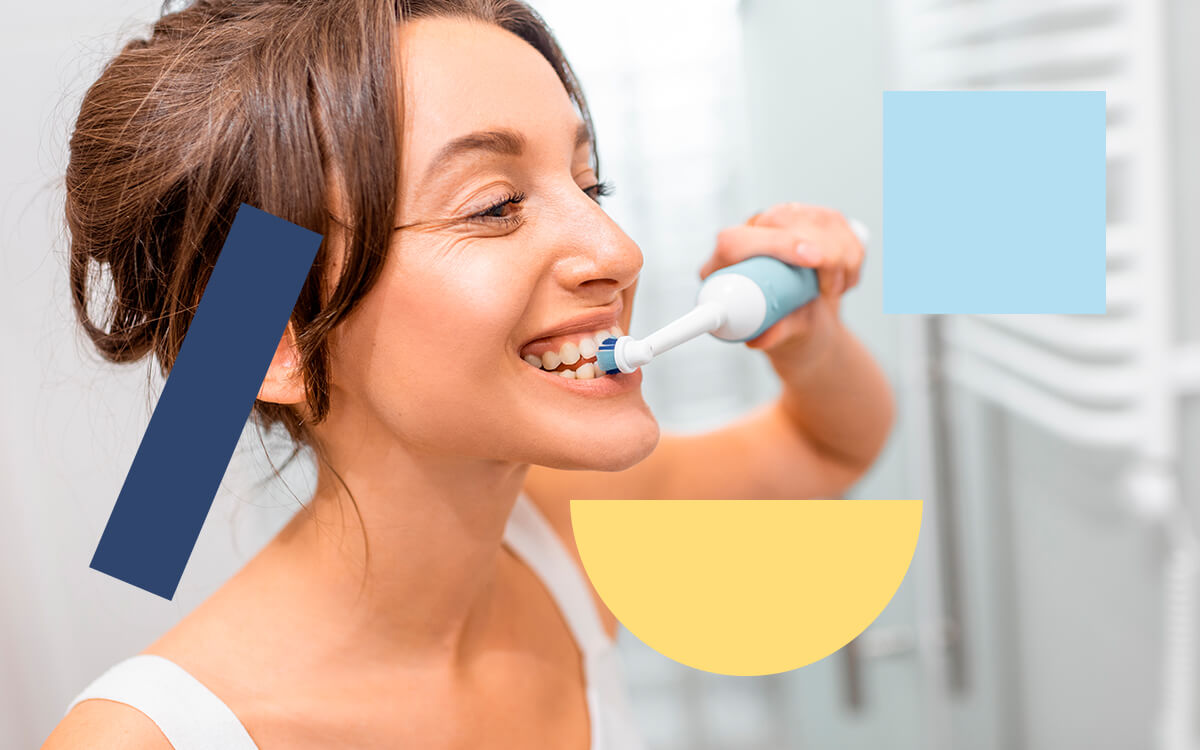 Oral health
Oral health
What to consider when choosing the best electric toothbrush?
In order to ensure proper oral hygiene, today there are multiple types of toothbrushes to choose from. If you also want to...

Dental erosion refers to the process of wear of the dental enamel, i.e. the hard tissue that covers the tooth.
Dental enamel, among other functions, covers and protects dentin. It is naturally affected by continuous processes of demineralization and remineralization, due to salivary pH and the influence of certain external factors and agents.
When the period of demineralization exceeds that of remineralization, progressive deterioration of the outer surface of the teeth occurs, increasing the risk of exposing the dentin to a whole series of dental problems, such as caries or sensitivity.
This term refers to the progressive and irreversible loss of tooth enamel, that is, the outermost layer of the tooth, composed of calcium mineral salts, which has the function of covering and protecting the dentin, the softer and more sensitive tissue underneath.
When dentin is exposed and experiences contact with external agents, it becomes more prone to caries and other dental problems, such as hypersensitivity to thermal changes, acidic foods and sugary drinks.
Dental erosion - also called acid erosion - is therefore a not at all sudden phenomenon that can also affect children's teeth and consists of a slow loss of hard tooth tissue.
The consequence is that the teeth become less resistant to external substances and agents and, therefore, more susceptible to attack by the microorganisms that constitute dental biofilm, caries and even to the forces of chewing that can end up breaking the tooth.
Every time you eat or drink something with a high acid content, such as soft drinks, alcoholic beverages, and especially when it is done on a regular basis, the tooth enamel loses part of the mineral that makes it up.
Saliva helps to restore these minerals and partially neutralizes the acidity, but in the long term and in the absence of proper cleaning of the oral cavity, the mouth can no longer defend itself against repeated attacks by acidic substances.
Thus, it happens that the outer surface of the teeth slowly begins to deteriorate, with the risk of exposing the dentin if appropriate measures are not taken in time.
It is not only acids that cause tooth erosion. The condition discussed in this article, in fact, can be the result of several factors that usually have nothing to do with caries or enamel damage caused by the microbial action of biofilm.
Before listing the possible causes of tooth enamel erosion, it is good to distinguish between reasons related to individual behavior and habits and those related to patients' health conditions, including eating disorders such as reflux or bulimia.
Among the reasons related to behavior the most frequent are:
On the other hand, among the factors derived from a person's state of health are certain diseases, among them:
Due to its slow and stealthy progress, it is not easy to detect the symptoms of dental erosion in its first stage of advancement. In fact, the most obvious symptoms occur when, unfortunately, enamel erosion is already at an advanced stage.
However, there are certain characteristics that act as warning signs and may suggest the presence of a disorder, such as dental erosion.
Some of the milder signs that may allow you to stop enamel erosion early are darkening of the teeth near the gum line, increased sensitivity to heat and cold, tendency to break and/or chip, and decreased resistance to biofilm and decay.
Initially, dental erosion manifests itself as punctiform cavities that appear on the surface of the dental enamel.
Later, the dentin underneath the affected enamel will begin to become visible and, as a result, the teeth may become more sensitive to heat, cold and sugary foods and drinks.
In contrast, in the more advanced stage of dental erosion, the symptoms are much more noticeable and the lesions more visible.
We have seen that the causes of dental erosion are mainly acidic agents.
For those related to the person's state of health, it is necessary to first consult a gastroenterologist and a psychiatrist (in the case of bulimia), as well as a dentist.
As for those related to behavior, it will be necessary to change eating habits, avoiding carbonated beverages and acidic foods or at least take some precautions:
The dentist will then perform a screening to evaluate etiological factors and establish a treatment for dental erosion.
The risk of tooth enamel erosion and dentin exposure can be prevented by taking the following :
This term refers to the progressive and irreversible loss of tooth enamel, that is, the outermost layer of the tooth that has the function of covering and protecting the softer and more sensitive dentin tissue underneath.
Teeth wear down because they suffer trauma, because of the conditions of the mouth itself, which may have a more or less acidic environment, because of the consumption of food or beverages that cause erosion of the entire tooth surface, or because of defects related to chewing.
No, tooth enamel does not regenerate. The outer coating of the teeth can become damaged over time due to improper diet and habits.
 Oral health
Oral health
In order to ensure proper oral hygiene, today there are multiple types of toothbrushes to choose from. If you also want to...
 Orthodontics
Orthodontics
In the days following the start of orthodontic treatment, it is very common to experience certain discomfort and pain that will gradually disappear. However...
Tooth enamel, among other functions, covers and protects dentin. It is naturally affected by continuous processes of demineralization and remineralization, through the development of...